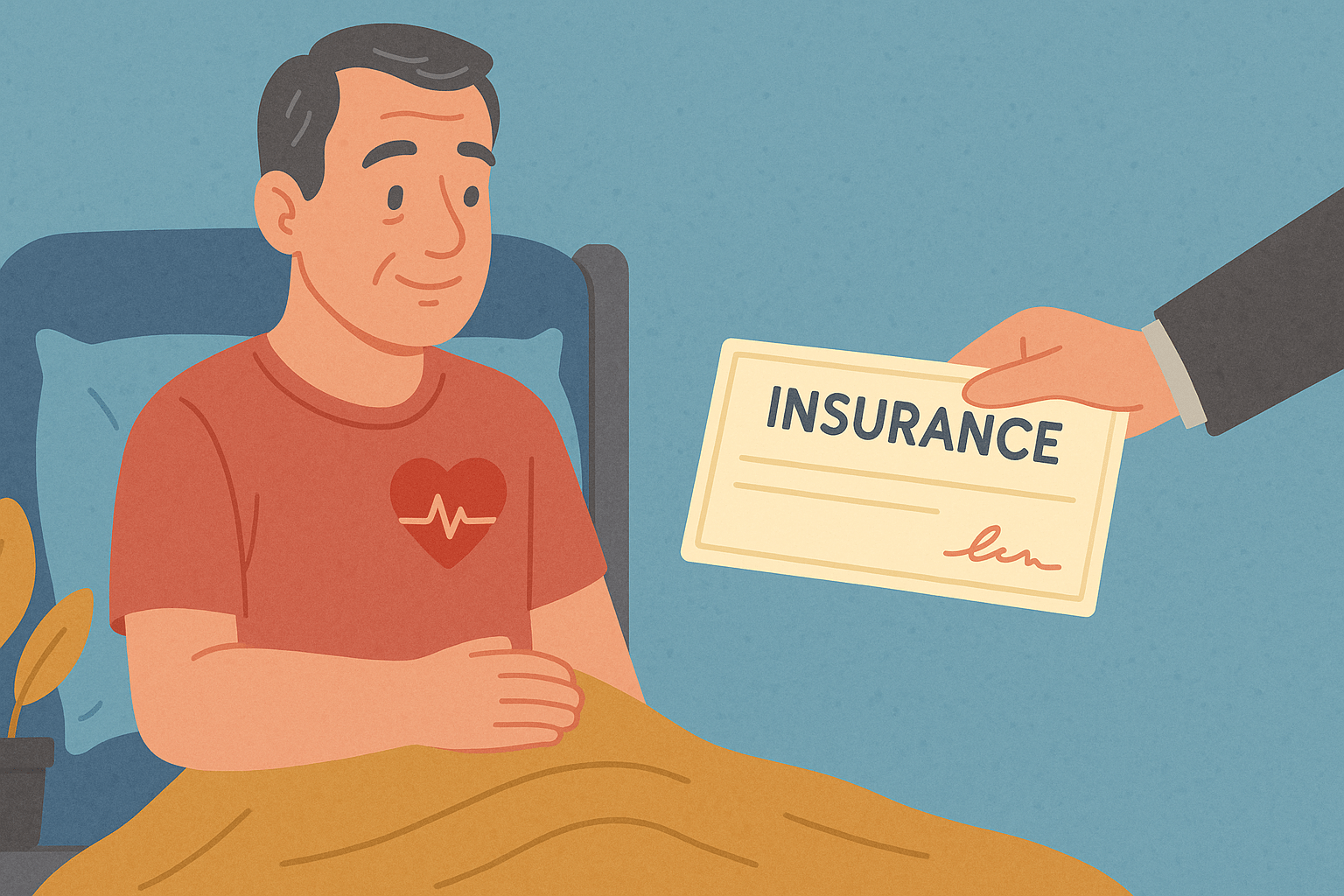Understanding Disability Vs. Critical Illness Insurance in Canada (2024)

Disability Insurance, particularly Long-Term Disability (LTD), and Critical Illness Insurance are two types of insurance that often generate questions due to their distinct purposes and criteria required for a policy to respond. This article aims to clarify these types of insurances, explaining when each pays a benefit, and highlighting scenarios where you might be eligible to claim one or both.
What is Disability Insurance (Long-Term Disability)?
Disability Insurance provides income support if you're unable to work due to a disability (due to either an illness or injury). Long Term Disability (LTD) insurance offers extended financial protection, responding once the elimination period (aka 'waiting period') has been satisfied. This could be anywhere from a week, to several months, up to a year, following the onset of a disability, depending on your policy's specifics. LTD benefits are designed to replace a portion of your income, aiding in maintaining your standard of living even if you're unable to generate your regular earned income.
What is Critical Illness Insurance?
Critical Illness Insurance delivers a lump-sum payment if you're diagnosed with one of the specific critical illnesses covered by your policy. Covered conditions vary but often include heart attack, stroke, cancer, and the next 20+ most common conditions people are diagnosed with. This payment is designed to help cover costs not typically covered by health insurance or Disability Insurance, such as medical treatments not available in Canada, home modifications, or taking time off work to recover.
When Does Disability Insurance Pay a Benefit?
Disability Insurance pays a benefit when you are medically unable to perform your job due to an illness or injury. The definition of "disability" varies by policy, with some requiring that you cannot perform the duties of your own occupation, while others stipulate that you must be unable to perform any occupation for which you are reasonably suited by education, training, or experience. The diagnosis must be confirmed by a medical professional, and there is often a waiting period (e.g., 90 days) after diagnosis before the benefit is paid.
Examples:
- A construction worker suffers a severe back injury and cannot return to their physically demanding job.
- A software developer develops a chronic illness, making it impossible to maintain the focus required for their work.
When Does Critical Illness Insurance Pay a Benefit?
Critical Illness Insurance pays out when you are diagnosed with one of the specific illnesses listed in your policy. The diagnosis must be confirmed by a medical professional, and there is often a waiting period (referred to as the 'survival period - which is typically 30 days) after diagnosis before the benefit is paid.
Examples:
- An individual diagnosed with cancer and after surviving the waiting period, receives a lump-sum payment to help cover medical and living expenses.
- An individual suffers a heart attack and, after surviving the waiting period, receives a lump-sum payment to assist with recovery and rehabilitation costs.
One More Time
Said another way; Disability insurance pays a benefit if you are unable to perform the duties of your occupation and generate earned income. Disability insurance provides a continuous stream of payments for as long as you are disabled, or until the policy terminates.
Critical Illness on the other hand, pays a benefit upon diagnosis of a covered 'critical illness' and pays a single lump sum benefit.
In either case, you can use the proceeds however you see fit.
When Might a Person Be Able to Claim on Both Their Disability Insurance and Their Critical Illness Insurance?
There are scenarios where an individual might be eligible to claim benefits from both their Disability Insurance and Critical Illness Insurance policies.
Examples:
- An individual diagnosed with cancer (covered under their Critical Illness policy) may also be unable to work due to the illness and treatment side effects, qualifying them for LTD benefits.
- An individual suffers a stroke, receiving a critical illness payout, and then faces a prolonged recovery period during which they cannot work, making them eligible for disability benefits.
Mutually Exclusive Claim Scenarios
While it is possible to claim on both insurances, it is important to recognize there are also situations where only one type of insurance responds and not the other.
Claiming On Disability, But Not Critical Illness
Examples:
- An individual suffering from severe depression may be unable to work and therefore qualifies for LTD benefits but may not receive a Critical Illness payout if their policy does not cover severe mental health conditions.
- A professional painter develops chronic tendonitis, qualifying for Disability Insurance benefits but not Critical Illness Insurance, as it is not considered a critical illness by many policies.
Claiming On Critical Illness, But Not Disability
Examples:
- An individual with an early-stage cancer diagnosis may receive a Critical Illness payout to seek treatment or make lifestyle changes without qualifying for Disability Insurance benefits if they can still work.
- An individual experiences a minor heart attack, covered by their Critical Illness policy, undergoes successful treatment, and returns to work quickly, not meeting the criteria for Disability Insurance benefits.
Conclusion
Both Disability Insurance (especially LTD) and Critical Illness Insurance are important coverages for Canadians looking to protect themselves and their families from the financial impact of illness and injury. While both insurance types offer valuable protection, they each serve different purposes and respond under different conditions.
By understanding these differences and when each type of insurance pays a benefit, you can make informed decisions about your insurance needs, ensuring you have the right coverage in place for life's unexpected.
Subscribe to our newsletter
Stay Informed with the Latest Insights and Updates
.svg)
%20150px%20x%20150px.svg)


